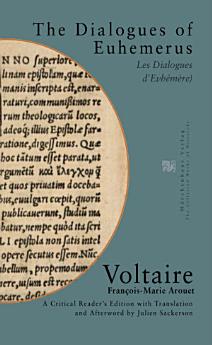The Dialogues of Euhemerus
Über dieses E-Book
Completed near the end of his life, Les Dialogues d’Evhémère synthesizes decades of reflection into a lively philosophical dialogue. The setting is imagined antiquity: Voltaire revives Euhemerus, a real Greek philosopher from Alexander the Great’s time, famed for his theory that the gods of mythology were originally just extraordinary humans later deified. He pairs Euhemerus with an interlocutor named Callicrates, an Epicurean philosopher from the 3rd century B.C., whom Voltaire portrays as an outspoken atheist-materialist. Over the course of twelve dialogues, these two debate a vast panorama of topics. In the early dialogues, they tackle metaphysical questions: Does a providential God exist, or are the gods of popular religion merely fables? What is the soul, and do we have evidence of its immortality? Why does evil exist, if any gods are just? Euhemerus, the traveler and Stoic, shares worldly observations and a deistic inclination – he suspects there is a higher principle, but nothing like the fantastical gods of Olympus – while Callicrates presses a more skeptical, even atheistic line, questioning whether any divine being is needed to explain the universe.
This modern Critical Reader’s Edition includes an illuminating afterword tracing Voltaire’s intellectual relationships with Enlightenment thinkers and philosophers (including Locke, Diderot, Rousseau and Newton), containing unique research into his influences and economic attachments, a comprehensive timeline of his life and works, a glossary of Enlightenment terminology, and a detailed index of all of Voltaire’s writings. This unique professional translation renders Voltaire’s sharp, satirical prose into modern language to preserve the original clarity and movement of the text. Combined with the scholarly amplifying material, this edition is a groundbreaking exploration of Voltaire’s classic works and his enduring artistic and philosophical influence, and influence on modern Protestant-Atheistic Theology.







